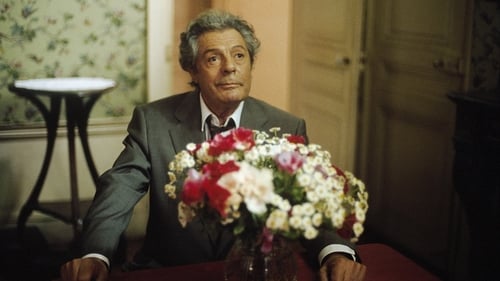
Le libraire
A mediocre pulp novelist is approached by a stranger claiming to be a serial killer with a proposition to chronicle his crimes.

Yves Froment
A dark tale of working-class life in Marseilles, a city in crisis. Interesting characters include a hard-bitten but compassionate fish market worker with a drug addicted daughter and a moody bartender with a shocking secret life.

Marcel Proust (1871-1922) is on his deathbed. Looking at photographs brings memories of his childhood, his youth, his lovers, and the way the Great War put an end to a stratum of society. His memories are in no particular order, they move back and forth in time. Marcel at various ages interacts with Odette, with the beautiful Gilberte and her doomed husband, with the pleasure-seeking Baron de Charlus, with Marcel's lover Albertine, and with others; present also in memory are Marcel's beloved mother and grandmother. It seems as if to live is to remember and to capture memories is to create a work of great art. The memories parallel the final volume of Proust's novel.

Le flic
From the director of Marius et Jeannette, this story of two working-class families is a fable with an optimist streak. A young black man, Francois, is wrongly accused of rape by a racist policeman. The story is told in voiceover by his childhood friend, neighbor, and the mother of his future child, Clementine, who is white. The city is Marseilles as in the previous film, symbolic with its churches, prisons and ruins. Except in this film, director Robert Guediguian also ventures outside, taking the story to Sarajevo; two different cities, one devastated by war, the other by a bad economy and unemployment. A la Place du coeur won a Special Jury Prize at the 1998 San Sebastian Film Festival and was also shown at the 1998 Toronto Film Festival and the 1998 Montreal Film Festival.

Tania's Husband
Um homem que se divide em quatro nomes e quatro personalidades que nos coloca em quatro diferentes histórias de amor, luxúria e crime.

Pinson
Lucia and Elena are best friends since childhood. They take a car trip from Paris to the country. Their conversations are overtly intimate, but more revealing is their tacit understanding of each others' personality and desires.

Disguising himself as a geisha and introducing himself as Madame Mufiko, a certain Max Fox opens a school in Paris where he proposes to teach the Japanese art of love. He recruits a few students, boys and girls, to whom he teaches to imitate the positions represented on old prints. The young people set themselves to it with such ardor that soon the girls are pregnant. In addition, the school is put under police surveillance and the false Mufiko sees her true identity revealed.






